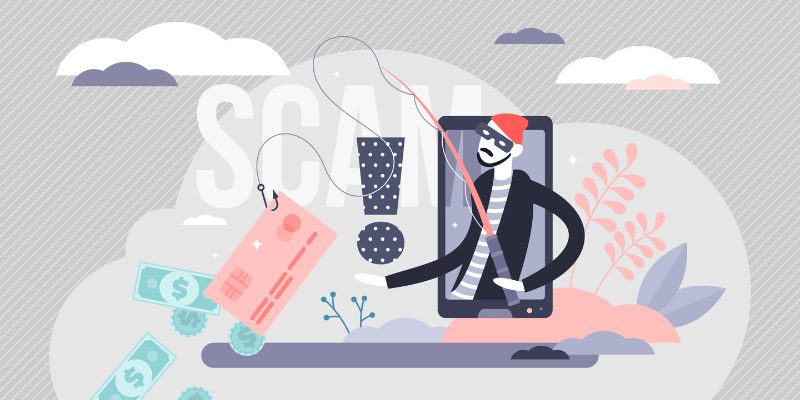By Amanda N. Wegner
Scammers are becoming savvier, and consumers of every age are in their sights. While it’s a common belief that older adults are the primary target of scammers, the Federal Trade Commission (FTC) reports that scams are harming Gen X, Millennials and Gen Yers more than older adults.
Simply put: No one is safe from scams.
“Scams aren’t always obvious,” says Michelle Reinen, acting administrator/executive policy initiatives advisor at the Wisconsin Department of Agriculture, Trade and Consumer Protection (DATCP). “In fact, they become more sophisticated every year as scammers’ use of technology and deceptive methods improve. The truth is that everyone is susceptible to being scammed.”
Reinen says that imposter scams, where a scammer pretends to be a trusted entity, are the most common type of scam. Recently there were cases in Wisconsin of imposter scammers pretending to be law enforcement; in one instance, the scammer even spoofed a law enforcement agency’s phone number.
A new element to imposter scams DATCP has recently noticed is the use of artificial intelligence or AI-powered voice cloning. This allows a scammer to use audio clips of a specific person — often obtained through social media — and mimic the sound of their voice.
“This makes identifying a scam even more complicated for consumers who may receive a call that sounds like a friend or family member requesting money for an emergency,” says Reinen.
Interestingly, one of the most common imposter scams reported to DATCP is the Publishers Clearing House scam. In this scam, you’re told you’ve won a prize, but the scammer indicates you must pay fees or “taxes” to receive the prize. “Unfortunately, many consumers take these messages at face value,” she says. “Remember that you cannot win a drawing or raffle you did not enter.”
Scams occur all day, every day, but there are times of year and events that tend to drive increases in scams. Spring and summer generally bring traveling contractor crews soliciting home repairs and real estate scammers capitalizing on seasonal homebuying. The holiday season often brings phishing scams that impersonate businesses having holiday sales.
Utility imposter scams, which involve scammers threatening to disconnect your utilities, surge when the temperature soars or drops — times when people would be most afraid to be without air conditioning or heat. Another event-driven scam can occur in storm-damaged areas when traveling crews use high-pressure sales tactics to convince consumers to sign home repair contracts. These crews often do not have the permits necessary to perform door-to-door solicitation, says Reinen, and there are reports of these crews doing poor-quality work or not doing any work at all — they simply pocket the money and leave.
By being aware of the signs of a scam, you can help to protect yourself from becoming a victim. Reinen offers these tips:
- Be cautious sharing personal information online. Personal data on public social media sites could be used by scammers and identity thieves.
- Avoid clicking links or opening attachments in unsolicited texts or emails. These can contain malware and viruses that could harm your device and steal your data.
- Be skeptical of payment requests made over the phone. Legitimate businesses and government entities will not call you to demand immediate payment — and they won’t demand you pay by non-traditional methods.
- Don’t make payments by wire transfer, cryptocurrency or a peer-to-peer payment app (like Venmo or Cash App), as money sent these ways can be difficult to recover. If someone demands payment via gift card or a prepaid credit card, it’s a scam.
- If an offer sounds too good to be true, it probably is! “Protecting your money, identity and property requires constant attention and safe practices,” says Reinen. “By being an informed consumer, anyone can reduce their risk of falling victim.”
If you suspect you have been scammed, contact DATCP’s Consumer Protection Hotline at 800-422-7128 or file a complaint at datcp.wi.gov. Find more consumer advice and information on scams on the DATCP and FTC websites.



